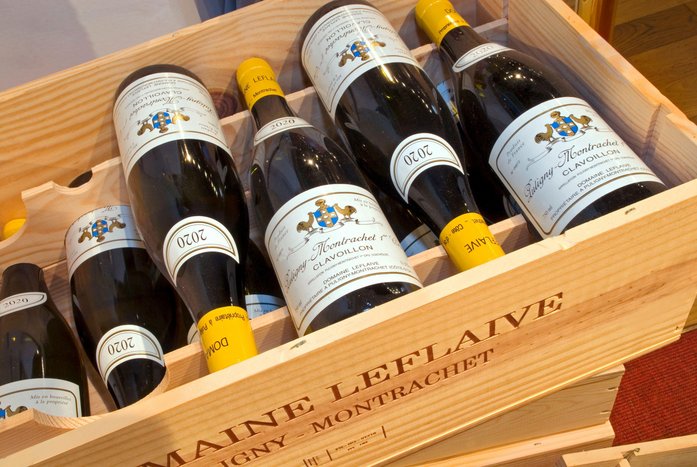Introduction
Few wineries have shaped the biodynamic wine movement as profoundly as Domaine Leflaive Wines. Located in the heart of Puligny-Montrachet, Burgundy, this historic estate has been producing some of the world’s finest Chardonnay wines for over a century. But what truly sets Domaine Leflaive apart is its early adoption of biodynamic viticulture, which has elevated its wines to legendary status.
In this article, we explore how Domaine Leflaive Wines have transformed the wine industry, leading the way for other wineries to follow.
1. How Domaine Leflaive Wines Became a Biodynamic Benchmark
Domaine Leflaive was founded in the early 20th century but rose to prominence under the leadership of Anne-Claude Leflaive, who took over in the 1990s. She was one of the first major Burgundy producers to fully commit to biodynamic farming, a move that was initially met with skepticism.
Key Milestones in Domaine Leflaive’s History
📍 1717 – The Leflaive family acquires vineyard land in Puligny-Montrachet.
📍 1920s – Joseph Leflaive expands the domaine and establishes its modern winemaking reputation.
📍 1990s – Anne-Claude Leflaive begins converting the estate to biodynamic farming.
📍 2004 – Domaine Leflaive achieves full Demeter biodynamic certification.
📍 Today – Considered one of the world’s most prestigious biodynamic wine estates.
Key takeaway: Domaine Leflaive’s commitment to biodynamics has helped shape the future of sustainable winemaking in Burgundy.
2. The Unique Biodynamic Practices Behind Domaine Leflaive Wines
Anne-Claude Leflaive transitioned the winery to biodynamic viticulture after noticing a decline in vineyard health due to conventional farming methods. She believed that biodynamic principles would revitalize the soil, enhance wine purity, and preserve the estate’s legacy.
Biodynamic Methods Used at Domaine Leflaive
🌱 No synthetic pesticides or fertilizers – Only organic materials are used.
🌿 Herbal vineyard treatments – Special sprays made from nettle, chamomile, and dandelion enhance soil health.
🌾 Lunar-guided vineyard work – Pruning, harvesting, and planting align with biodynamic calendars.
🍇 Manual harvesting – Grapes are picked by hand at peak ripeness to preserve terroir expression.
🛢️ Native yeast fermentation – Ensures natural fermentation and authentic flavor development.
Key takeaway: Domaine Leflaive Wines showcase the purest expression of terroir through low-intervention, biodynamic farming techniques.
3. Top Domaine Leflaive Wines to Try in 2025
Domaine Leflaive is known for its highly sought-after white Burgundies, particularly from Puligny-Montrachet and Meursault.
Top Biodynamic Wines from Domaine Leflaive
1. Puligny-Montrachet Clavoillon Premier Cru
✔️ Tasting Notes: Vibrant citrus, floral elegance, mineral-driven.
✔️ Aging Potential: 10+ years.
✔️ Food Pairing: Shellfish, oysters, creamy risotto.
2. Chevalier-Montrachet Grand Cru
✔️ Tasting Notes: Deeply complex, notes of hazelnut, white peach, and limestone minerality.
✔️ Aging Potential: 15-20 years.
✔️ Food Pairing: Grilled lobster, foie gras, roasted chicken.
3. Mâcon-Verzé
✔️ Tasting Notes: Crisp apple, honeysuckle, bright acidity.
✔️ Aging Potential: 5-8 years.
✔️ Food Pairing: Light seafood, goat cheese, salads.
Key takeaway: Domaine Leflaive Wines are renowned for their precision, balance, and exceptional aging potential.
4. Why Collectors Value Domaine Leflaive Wines
Domaine Leflaive Wines are considered some of the most collectible white wines in the world, with high resale value and long aging potential.
Why Collect Domaine Leflaive Wines?
✔️ Biodynamic purity – A rare example of high-end biodynamic Burgundies.
✔️ Investment-worthy – Prices for aged Domaine Leflaive Wines increase significantly over time.
✔️ Exceptional aging – Many of their Premier Cru and Grand Cru wines age beautifully for decades.
For collectors and Burgundy enthusiasts, owning Domaine Leflaive Wines is both a pleasure and an investment.
5. Where to Buy Domaine Leflaive Wines Online
Want to add Domaine Leflaive Wines to your collection? Here’s where to find them:
🔹 Specialty Wine Retailers – Search for biodynamic Burgundy selections.
🔹 Auction Houses – Sotheby’s, Christie’s, and WineBid often feature rare Domaine Leflaive vintages.
🔹 Direct from Wineries – Some allocations are available directly from Domaine Leflaive’s official website.
🔹 Premium Wine Clubs – Many offer exclusive access to aged Domaine Leflaive wines.
6. Final Thoughts: The Lasting Influence of Domaine Leflaive Wines
Domaine Leflaive’s impact extends far beyond Burgundy. By pioneering biodynamic viticulture, it has helped shape the future of sustainable winemaking worldwide.
🥂 Why Domaine Leflaive Wines Stand Out:
✔️ Among the first Grand Cru estates to embrace biodynamics.
✔️ Consistently produces some of the world’s finest Chardonnays.
✔️ Has influenced top wineries worldwide to transition to biodynamic farming.
🍷 Want to explore other top biodynamic wines? Check out our list of The Best Biodynamic Wines to Try in 2025.
References & Further Reading
📌 Domaine Leflaive Official Website
🔗 https://www.domaine-leflaive.com
“Official website of Domaine Leflaive, providing details on their biodynamic philosophy, vineyard locations, and wine offerings.”
📌 Demeter International – Biodynamic Wine Certification
🔗 https://www.demeter.net
“Demeter is the leading certification body for biodynamic agriculture, ensuring the highest standards in biodynamic viticulture.”
📌 Wine Spectator – The Biodynamic Approach at Domaine Leflaive
🔗 https://www.winespectator.com
“Explores the impact of biodynamic farming on Domaine Leflaive’s winemaking and its influence on Burgundy wines.”
📌 Decanter – How Domaine Leflaive Became a Biodynamic Leader
🔗 https://www.decanter.com
“In-depth feature on Anne-Claude Leflaive’s role in transitioning the estate to biodynamic farming.”
📌 Burghound – Domaine Leflaive Wine Reviews
🔗 https://www.burghound.com
“Detailed tasting notes and vintage reports on Domaine Leflaive’s Puligny-Montrachet and Grand Cru wines.”
📌 UNESCO – The Climats of Burgundy
🔗 https://whc.unesco.org/en/list/1425
“UNESCO’s official page on the Climats, terroirs of Burgundy, explaining the unique vineyard classifications that include Domaine Leflaive.”
📌 Jancis Robinson – The Evolution of Biodynamic Wine in Burgundy
🔗 https://www.jancisrobinson.com
“Expert analysis on how biodynamic viticulture is shaping Burgundy’s top wineries, including Domaine Leflaive.”





